Kashmir problem is much older than the accession issue which cropped up in 1947. Ever since the British imperialists sold the Valley to Maharaja Gulab Singh in 1846, the problem has presented itself in one shape of another. For over eighty years the Dogra Hindu rulers could contrive to conceal the hideous truth that their subjects, predominant majority of whom was Muslim, were unhappy under their harsh rule. But when in 1931 the Kashmiris rose in open rebellion against the despotism the problem was posed in public for the first time. After independence the issue has in essence remained unchanged, namely, the scope of freedom for the State Muslims under majority Hindu rule. As long ago as 1932 my analysis of State politics led me to the conclusion that Muslim aspiration for freedom from autocratic yoke was no communal issue. A Kashmiri is neither a bigot nor a religious zealot, but he is a man of flesh and blood; he therefore pines for human sympathy; only when he is refused the decencies of life he is forced to be disloyal and to revolt. In the long period of over thirty-four years 1 have had exchange of views on the vexing issue with leaders like Mahatma Gandhi and Jawaharlal Nehru as also a large number of Kashmiri politicians and patriots. From time to time I expressed my views on State affairs in the context of Kashmir’s historical background and a rising wave of democracy. I tried to elicit the opinions of the great leaders which they stated, at times with candour, in their letters. Those in disagreement with me in Kashmir have subjected my views to a close scrutiny thereby presenting other aspects of the problem with by me. Since this correspondence (comprising selected letters from a big bunch) throws revealing light on the theme of the book, I have included it as appendices at the end. In the preparation of this volume I have heavily drawn on the writings of several authors, ancient and modern, I owe a debt of gratitude to them all.
Kashmir in Crucible
$40.50
$45.00
In stock
Free & Quick Delivery Worldwide
All orders amounting to US$ 50 or more qualify for Free Delivery Worldwide. For orders less than US$ 50, we offer Standard Delivery at $14 per book.
ABOUT THE AUTHOR Prem Nath Bazaz
Prem Nath Bazaz was born in July 1905 at Srinagar. Educated in S.P. College, he took his degree from Punjab University and entered public life in august 1930 by joining the Women's Welfare Trust. In 1931 he was elected President of the S.D. Yuvat Sabha that year the Maharaja nominated him as a nonofficial member of the Grievances Enquiry Commission and the Constitutional Reforms Conference. He started the daily Vitasta in 1932 to advocate the cause of Secularism, Democracy and Freedom. With the same aim, Bazaz, in collaboration with Sheikh Abdullah, founded the weekly Hamdard in 1935 which was converted into a dairy in 1943. For expressing radical views, he was imprisoned by the Maharaja's Government for six months in 1938. When the Muslim Conference was converted into National Conference in 19339, Bazaz joined it but finding it inadequate for his purpose he resigned in 1941 and formed the Kashmir Socialist Party to practice his ideals. He presided over the Press Conference in 1943, played a prominent role in the historic, Kabamarg Congress of the Kisan Mazdoor Conference in 1946; was shot and seriously wonded in April 1947 by a political opponent; arrested by the Kashmir Government in October 1947 and detained in Jammu, Kathua and Udhampur Jails without trial for three years. Immediately after release in 1950 he was exiled from the Kashmir State. In New Delhi he was elected President of the Kashmir Democratic Union. Here he founded and edited the monthly Wwce of Kashmir in 1954. Declaring some of his writing as objectionable the Government of India detained him for one year in Delhi Jail in 1955. Bazaz is the author of several books including Inside Kashmir (1942), Azad Kashmir (1951) and the History of Struggle for Freedom in Kashmir (1954). He has written a number of treatises and booklets in English and Urdu on economic, political, cultural and social problems of Kashmir. In June 1981 he underwent heart surgery in the states. His recovery was delayed by the news of fatal road accident of his bright and promising youngest son Kishore in August. Death of Badri, his wife in May 1962 left him utterly lonely. He passed away in July 1984, mourned by the National and International leaders intelectuals as a true fighter for freedom should.
reviews
0 in total
Review by Anonymous
Be the first to review “Kashmir in Crucible” Cancel reply
You must be logged in to post a review.
Bibliographic information
Title
Kashmir in Crucible
Author
Edition
1st ed.
Publisher
ISBN
9788183390248
Length
xv+318p., Index; 23cm.
Subjects
more by Prem Nath Bazaz see more
similar bookssee more
Encyclopaedia Indica: India, Pakistan & Bangladesh (Volume 111 to 130)
Encyclopaedia Indica is a ...
$1440.00
$1600.00

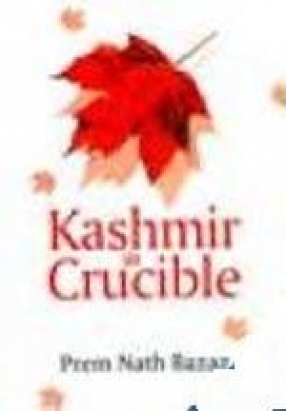
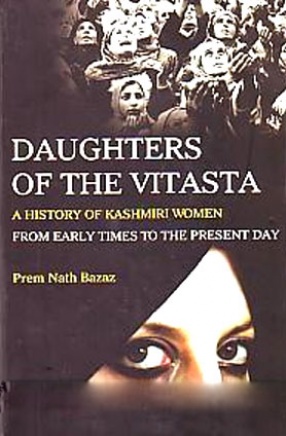
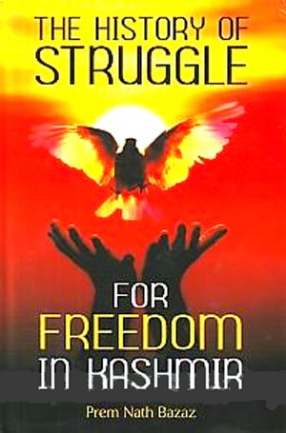
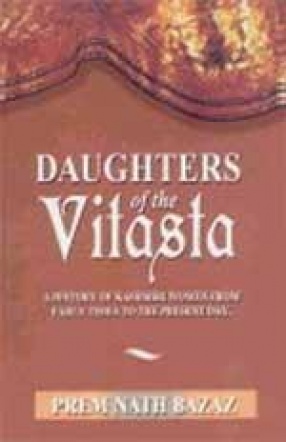
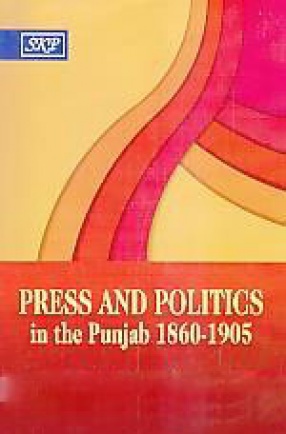
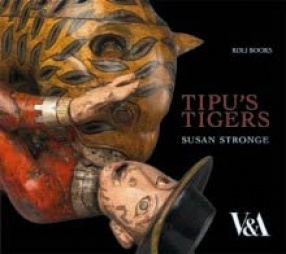

There are no reviews yet.